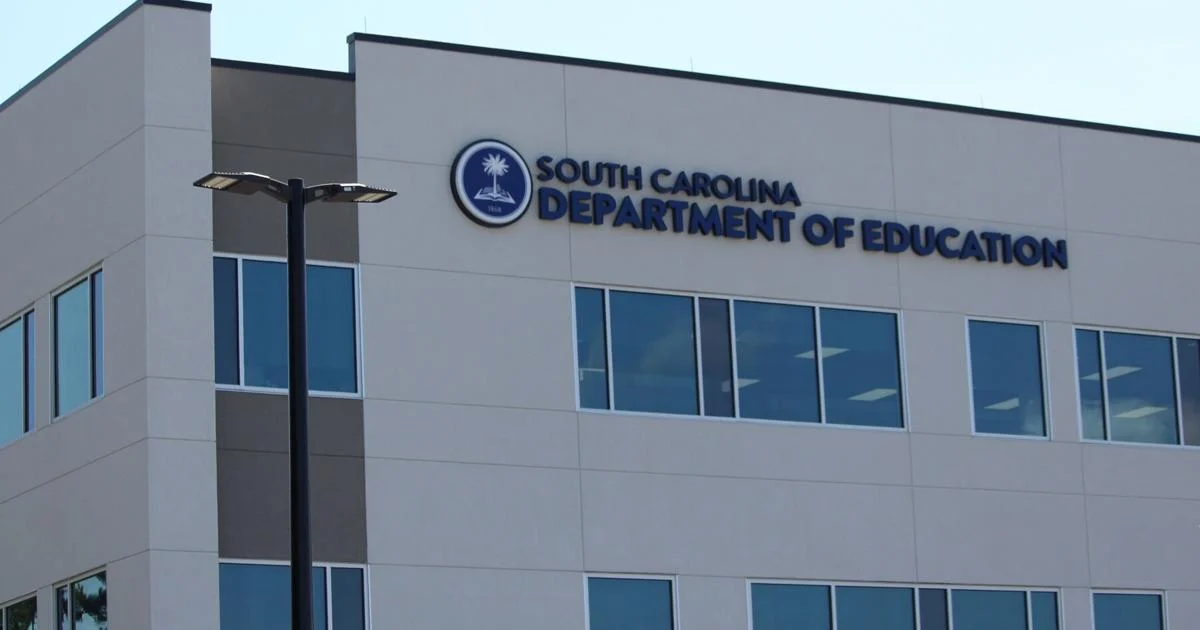Copyright Charleston Post and Courier

COLUMBIA — Officials in the S.C. Department of Education have quietly urged the Marlboro County school board to cut ties with its superintendent, citing concerns about her cooperation with the state’s ongoing takeover of the embattled district’s finances. The board began that process Nov. 3, voting 6-3 for its lawyers to start negotiating with Superintendent Helena Tillar’s lawyers to reach a “mutually agreed upon separation.” That vote, which drew a “thank you” from State Superintendent of Education Ellen Weaver in an email to the board the next day, came after the Education Department took control of the Pee Dee district’s finances in July following years of deficit spending and ongoing financial problems. A mutual separation agreement between Tillar and the board was one of the options laid out in an Oct. 29 letter from Henry Gunter, the Education Department’s deputy general counsel, to two attorneys representing the Pee Dee district. The letter “memorializes” conversations between the attorneys, department staff, district administrators and the school board, it says. “It would be both prudent and justified for the Board to take clear action at its next meeting on November 3, 2025, to address Superintendent Helena Tillar’s employment contract,” the letter, obtained by The Post and Courier, says in bold text. Gunter adds that the department believes there to be “ample evidence” for the school board to dismiss the superintendent for cause. But that option could lead to litigation, the letter warns; a mutual agreement would cost $110,833 if it was effected by Dec. 1. His letter alleges that Tillar “repeatedly disregarded” the department’s directives that it approve new hires, and that the State Inspector General, which is investigating the district, disclosed that a senior district official alleged that district staff were told not to share “too much information” with the department. It also raised concerns about the district’s purchase of a 2024 Jeep Grand Cherokee for Tillar’s use. The letter alleges that the district did not follow a proper procurement process for that purchase, with Tillar instead authorizing a district staffer to purchase the car from a North Carolina CarMax, and that a district purchase card was used to pay for an extended warranty. Tillar did not respond to the newspaper’s requests for comment made through a district spokeswoman. She was hired to lead the district for the second time in 2023, after her first seven-year tenure ended in 2017 when the board forced her out of the job after she filed a grievance against board members. She defended herself in a Nov. 3 letter to board members, noting that the district’s financial problems existed before she was rehired, and blaming some of those problems on her predecessors. Tillar had alerted the board to unsustainable pay and staffing, as well as infrastructure work funded by federal pandemic relief money that hadn’t been completed as billed, she wrote. Her administration had identified ways to cut costs, she added, even as it had to reinstate cancelled contracts for sewage work, roof repairs and HVAC systems. She touted accomplishments including getting the district accredited, securing grant funding, reinstating afterschool programs and replacing online teachers with newly hired ones. “As it relates to the SC State Department of Education’s claim that I have been derelict with my duties, that is definitely not the case,” her letter said. But, she added that she would be willing to “compromise” and accept the 12 months of pay that her contract sets out as severance, as well as a $10,000 annuity for her recent positive evaluation. That $190,000 payout is more than the department would approve, Gunter wrote in his letter to the district’s attorneys. Tillar still has backers on the board, including Rippen McLeod, who described the Education Department’s efforts against her as a “witch hunt.” He dismissed the state’s concerns about the Jeep, saying that the board had approved the purchase and that it was paid for by insurance after her previous car was totaled in a crash, which Tillar’s letter also explained. “I unequivocally support Dr. Tillar 100 percent, no doubt, no doubt whatsoever,” McLeoad said. He pointed improvements in some district schools’ state report card ratings this year. Board chairman Michael Coachman, who also voted against the motion to negotiate a break with the superintendent, did not respond to a request for comment about the correspondence between the department and district. When initially asked Nov. 5 if the decision had anything to do with the state’s financial takeover, he had said it was “very well possible.” The vote came with no public discussion, but followed a two-hour-long closed-door session during which the board received legal advice about the superintendent’s contract. One board member who voted in favor of the negotiations, Leevander McRae Jr., disputed that the state had anything to do with the board’s decisions. “That was totally a Marlboro County school board decision,” he said Nov. 5. The department has previously said that it could take full control of the district if the situation there worsens, which would automatically disband the local board. Continued financial problems The Education Department’s financial takeover followed years of fiscal troubles in the small district, which had eaten away at its cash reserves to pay for a disproportionately large staff as enrollment shrunk. The final straw for the state was a later-than-last-minute budget proposal that would have closed two campuses weeks before the start of the school year and pulled even more from the district’s reserves to balance its books. Financial decisions now must be approved by the state. At the start of this month, its outlook was improving but still serious; Weaver told the board it was “on the brink of insolvency.” The district was able to make November payroll, but still owes over $2 million to the S.C. Public Employee Benefits Authority for employees’ retirement pay, Michael Thorsland, a former Oconee County superintendent hired by the Education Department to work with Marlboro leaders, told the board Nov. 3. Tillar said during that meeting she had submitted a plan in October that would thin out district office staff from 45 to 30 and cut some teacher assistants and other staff over time, which Thorsland said would save upwards of $450,000 this fiscal year and allow for a balanced budget next year. “We have to implement it,” he told the board. “It’s going to be some hard conversations, and some people taking on extra duties, maybe that they haven't had to do before, but that’s what it’s going to take to balance the budget.” He attributed the district’s cash-strapped position to its depleted fund balance, a pot of money that’s sort of like a savings account for a school district. Having a solid fund balance is important because districts’ expenses don’t come due at the same time that revenue comes in, so officials need that cash on hand to pay bills on time. Marlboro’s fund balance has dropped by about $9 million over the last three years, from nearly $15 million in 2022 to around $5.5 million at the end of June. That overspending is because the number of non-teaching staff in the district has gone up significantly even as the number of students has gone down, Thorsland told the board. “That’s why we’re here, that’s why there’s a budget problem,” he said. Tillar and Coachman said during the Nov. 3 meeting that many of the additional positions that Thorsland considered excessive were not added during her tenure.



